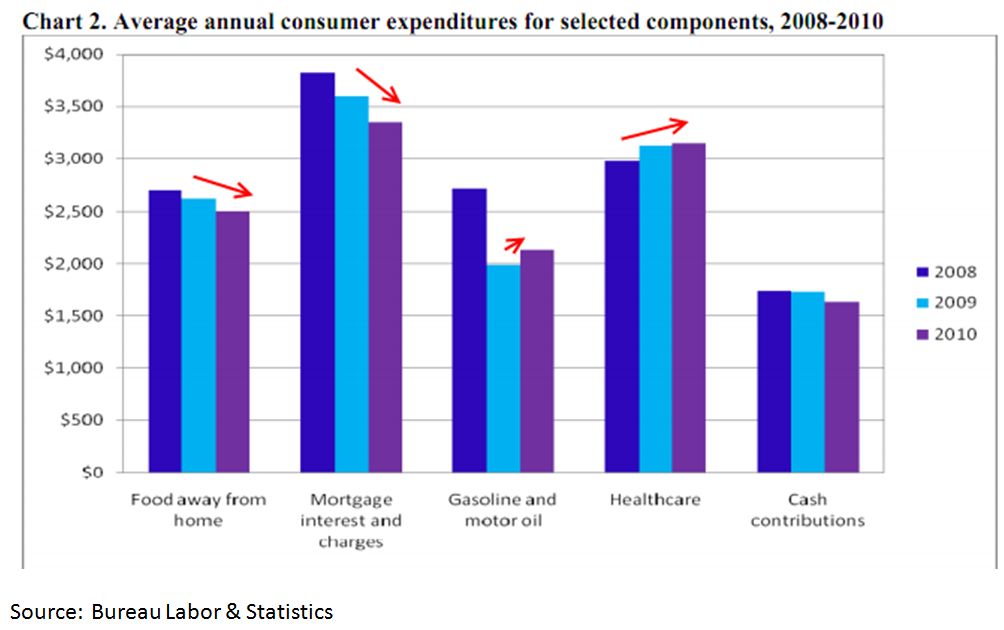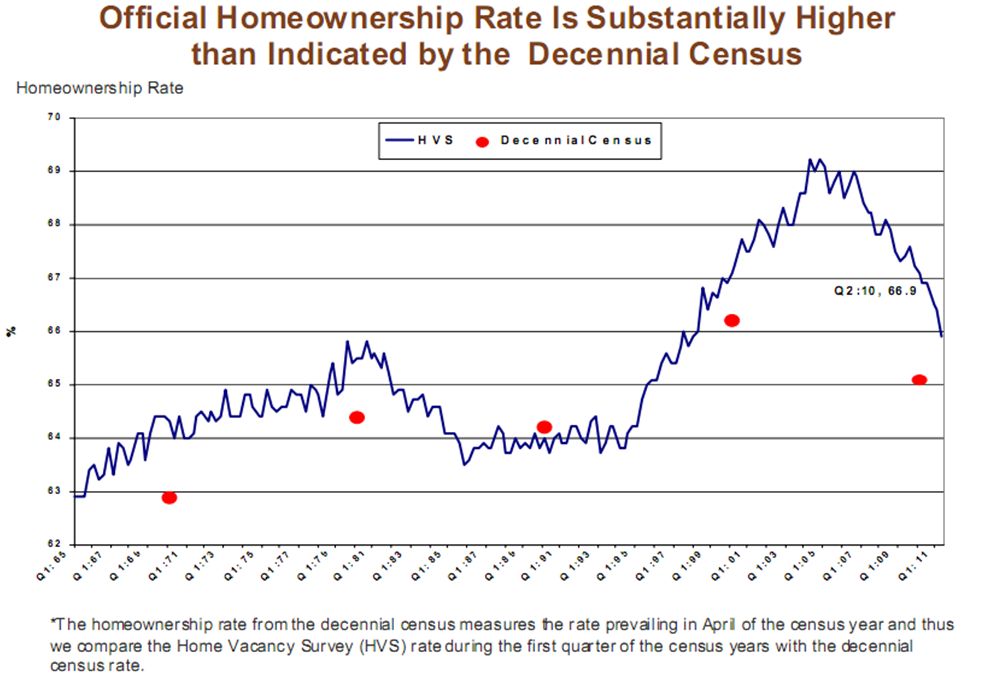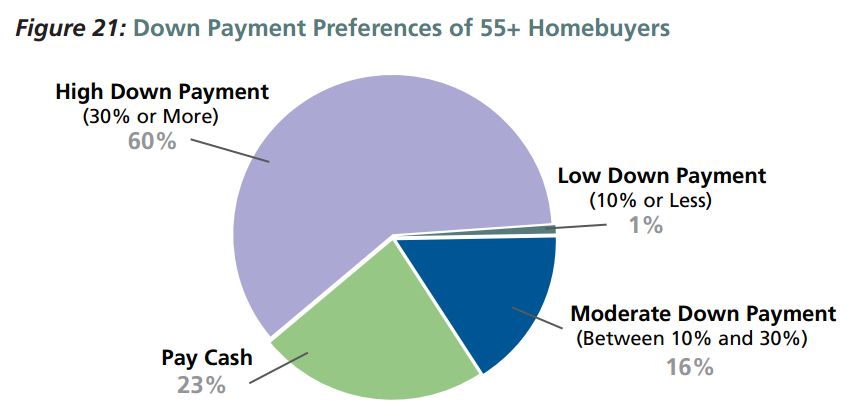[caption id="attachment_6370" align="alignleft" width="300" caption="Housing Analysis"]

[/caption]
SURVIVAL SKILLS: KEY MARKET AND ECONOMIC TRENDS THAT WILL HELP (OR HURT) YOUR BUSINESS
The role of the Real Estate professional has evolved dramatically in much of the same way the role of the loan officer. Lender overlays in order to either mitigate risk and/re recoup from past losses are the challenges that confront both of these sales professionals. It is important to note that for all us in the housing markets, we significantly benefited in the era of virtually free lending and no underwriting standards. Up until the era of ‘free love’ ended and the ‘era of financial responsibility’ began, the borrower themselves benefitted from this culture of purchase and refinance, or purchase and sell. Financial Russian roulette is where after the gun has been passed four or five times, eventually the last person with the gun becomes the loser however no one knows just who this will be. The reality is, in this game where losses are spread albeit unevenly, everyone is negatively impacted when the gun goes off. Well, the gun went off in 2007 with the collapse of the market and all of us in the housing market lost. Realtors, Builders and Mortgage Professionals all have suffered from this however the main losers are the end investors and homeowners. For a variety of market driven reasons, Realtors, Builders and Mortgage Professionals don’t play well together. The criticisms for the mortgage side are loud and clear – lender overlays, large margins, slow turn times and poor service. If you are a realtor – broker or agent, you are used to being called lazy, lacking sales skills and of course, people who collect a commission for doing very little work. Builders are not rescued from these criticisms; they build cheap homes, they cut corners to save a buck and of course they frequently run into financial problems leaving home owners with little recourse in the year or years that follow the purchase. The list runs long and yet these are the criticisms we throw at one another let alone the criticisms that come our way from market critics, journalists or even worse, politicians.
2011 Was a Good Year…..If it was 1998. Before highlighting a few helpful trends for your business, it is important to note that mortgage trends are roughly hovering around 1998 volumes – at around $1T between new purchases or refinance loans. For many of you realtors who were in the business in the 1990’s, like my Father, 1998 was a good year. In fact, 1998 was a strong year as compared to the previous decade of housing activity. If the subprime market had never been created by
Fannie Mae, former CEO Franklin Raines and the Clinton Administration, and if the market had been allowed to grow organically from 1998 levels onward, we would never have known anything different than the levels we are seeing today. We all benefited from the illusion of growth fueled by the subprime market, so, let me start by saying: 2011 was a good year but only if you get rid of your ipod and smart phone and think back to the market fears of Y2K, because 2011 was a repeat of 1998. So, if you are a Real Estate Broker or Agent, here are a few market trends to keep an eye on. These have an impact in two ways; they are trends that if understood and executed upon, will help you strategically position your business in your markets; and secondly, trends that could be used to educate your client and build a better relationship with them.
How are consumers spending their money? [caption id="attachment_6367" align="alignleft" width="783" caption="Consumer Expenditures"]

[/caption] Source: Bureau Labor & Statistics The economy over the last three years has strained the cash flow of your client. With unemployment at its highest levels since November of 1983 (at 8.6%) , the monies that your clients have are being shifted away from their mortgage (e.g. a renters market) and toward expenses that are considered more important such as healthcare, transportation and heat, which all take up a larger percentage of available income today than they did three years ago. A renter’s market today is a housing boom in the waiting especially as credit and underwriting guidelines begin to loosen up albeit very slowly. Given the stability of home ownership, realtors who build relationships with renters and potential homeowners will be tomorrow’s winners.
Homeownership Rates Have Declined But Remains Very high If you recall what was said previously in the article that 2011 is a repeat of 1998, this was the year homeownership was at its highest level in the history of our country. So when I say 1998 was a good year, it was emblematic of all that was right about American values and home ownership. If you simply erased the illusion of home ownership created by the Federal Government from 2001-2010, the good news is: we are still at historic levels.
Combined with several other charts, one of the first discussions I would have as a realtor is why today is the right time to buy and why joining other people today in buying a home is still the single best thing that you can do as an American in today’s marketplace. [caption id="attachment_6368" align="alignleft" width="808" caption="Homeownership Rate by Decennial Census"]

[/caption] Who is buying a house today? The NAHB is counting on
Gen X’ers, named after Billy Idol’s 1970’s band called GenX (it is also interesting to note that this is also the demographic formerly known as the “Baby Bust” generation due to the decline in birth numbers as compared to the “Baby Boomers”). Gen X’ersare people born between 1967 and 1980. Despite being thirty percent of the overall population of the United States- roughly fifty Million, there is growing optimism in this demographic regarding homeownership. We believe this is exaggerated but a worthy market segment to target. Keep in mind, this generation of clients simply don’t have a down-payment as their savings is significantly lower than their Baby Boomer counterparts. This is also why many of these borrowers are receiving one time tax ‘gifts’ from their Baby Boomer relatives in order to afford a down payment and afford a home. Only six percent of pretax compensation is allocated toward savings (on average) versus the average savings rate for Baby Boomers, which is around nine percent. . Another factor to keep in mind, is to understand that Generation X is heavily in debt. With nearly fifty percentof Gen Xers opting to not have children, this is the college debt generation. If you basically understand the mortgage process as debt versus income, then you’ll see that this generation has challenges. This is why the Baby Boomers are so important because they often help with the down payment to get the respective monthly mortgage payment down to as low as possible. Without this help, there is a limited chance for home ownership for this demographic.
The Millennials or Gen E or Gen Y (depending upon the sociologist) are the Echo-Boom generation with, interestingly enough, a demographic nearly as large as the Baby Boomers with around 70 Million people. These are people born from 1981 to 1993. These are your first time home buyers but once again, are strapped with the same problems that Gen Xers have but without the assistance of the Baby Boomers. If there is evidence of a resurrection of a ‘subprime’ mortgage product that has more liberal underwriting requirements for borrowers laden by debt and with challenged credit, it revolves around this demographic. If nothing is done for these first time home buyers, 2011 will be the glory of yester –years as we look to 2013-2020 housing markets. [caption id="" align="alignnone" width="749" caption="Down Payment Preferences of 55+ homebuyers NAHB"]

[/caption] Nearly half of buyers today are
Baby Boomers (born between the years 1946-1964). This market segment is cautious and they are downsizing to preserve much needed retirement savings that has been depleted due to the instability within the stock market. They are also not in a hurry to sell their existing home which makes them prime targets for non-owner, occupied vacation property homes (and not condos because condos don’t retain any value). That vacation home will become their new retirement savings, something they can cash in on if they need to rely upon the cash flow in later years. Baby boomers also have the highest amount expendable capital with over thirty percent putting forward high down payments on their home purchases; nearly twenty five percent are paying all cash for their home purchases. It is important to note, that these all cash purchases that later become investment properties and will be used as the new ‘retirement’ income stream. As a realtor, my sales presentation would focus on these key themes; having two hundred thousand dollars in a 401(k) is far more risky at the age of sixty, then it is in a home that is purchased for all cash down. This is especially true as property values increase in value over the next twenty years. As we look to future issues, several Gen X economists will contribute to these evolving trends. These are economists that you’ve never heard of but are at the leading edge of the economic thought leadership of the housing market. You have to remember that Bernanke and today’s policy leaders are Baby Boomers with few roots to globalization factors, technology, the connectedness of social media and the collaborative power of the internet. These are cold war era economists who are accustom to building walls and sharing less, rather than tearing down boundaries and sharing more, typical attributes of Gen X and the Millennials. Builders are taking notice of these trends, building smaller homes, nestled in connected communities, built with these social media concepts in mind. In February’s issue, we will review credit criteria for a mortgage and how a realtor can take advantage of this to build effective relationships and sow the seeds for tomorrow’s purchases. [caption id="attachment_4352" align="alignleft" width="150" caption="Rick Roque"]

[/caption] Rick Roque,
Managing Editor for The Niche Report & Gen Xer For Comments, call me at 408.914.5895 or email me at
[email protected]
 [/caption] Source: Bureau Labor & Statistics The economy over the last three years has strained the cash flow of your client. With unemployment at its highest levels since November of 1983 (at 8.6%) , the monies that your clients have are being shifted away from their mortgage (e.g. a renters market) and toward expenses that are considered more important such as healthcare, transportation and heat, which all take up a larger percentage of available income today than they did three years ago. A renter’s market today is a housing boom in the waiting especially as credit and underwriting guidelines begin to loosen up albeit very slowly. Given the stability of home ownership, realtors who build relationships with renters and potential homeowners will be tomorrow’s winners. Homeownership Rates Have Declined But Remains Very high If you recall what was said previously in the article that 2011 is a repeat of 1998, this was the year homeownership was at its highest level in the history of our country. So when I say 1998 was a good year, it was emblematic of all that was right about American values and home ownership. If you simply erased the illusion of home ownership created by the Federal Government from 2001-2010, the good news is: we are still at historic levels. Combined with several other charts, one of the first discussions I would have as a realtor is why today is the right time to buy and why joining other people today in buying a home is still the single best thing that you can do as an American in today’s marketplace. [caption id="attachment_6368" align="alignleft" width="808" caption="Homeownership Rate by Decennial Census"]
[/caption] Source: Bureau Labor & Statistics The economy over the last three years has strained the cash flow of your client. With unemployment at its highest levels since November of 1983 (at 8.6%) , the monies that your clients have are being shifted away from their mortgage (e.g. a renters market) and toward expenses that are considered more important such as healthcare, transportation and heat, which all take up a larger percentage of available income today than they did three years ago. A renter’s market today is a housing boom in the waiting especially as credit and underwriting guidelines begin to loosen up albeit very slowly. Given the stability of home ownership, realtors who build relationships with renters and potential homeowners will be tomorrow’s winners. Homeownership Rates Have Declined But Remains Very high If you recall what was said previously in the article that 2011 is a repeat of 1998, this was the year homeownership was at its highest level in the history of our country. So when I say 1998 was a good year, it was emblematic of all that was right about American values and home ownership. If you simply erased the illusion of home ownership created by the Federal Government from 2001-2010, the good news is: we are still at historic levels. Combined with several other charts, one of the first discussions I would have as a realtor is why today is the right time to buy and why joining other people today in buying a home is still the single best thing that you can do as an American in today’s marketplace. [caption id="attachment_6368" align="alignleft" width="808" caption="Homeownership Rate by Decennial Census"] [/caption] Who is buying a house today? The NAHB is counting on Gen X’ers, named after Billy Idol’s 1970’s band called GenX (it is also interesting to note that this is also the demographic formerly known as the “Baby Bust” generation due to the decline in birth numbers as compared to the “Baby Boomers”). Gen X’ersare people born between 1967 and 1980. Despite being thirty percent of the overall population of the United States- roughly fifty Million, there is growing optimism in this demographic regarding homeownership. We believe this is exaggerated but a worthy market segment to target. Keep in mind, this generation of clients simply don’t have a down-payment as their savings is significantly lower than their Baby Boomer counterparts. This is also why many of these borrowers are receiving one time tax ‘gifts’ from their Baby Boomer relatives in order to afford a down payment and afford a home. Only six percent of pretax compensation is allocated toward savings (on average) versus the average savings rate for Baby Boomers, which is around nine percent. . Another factor to keep in mind, is to understand that Generation X is heavily in debt. With nearly fifty percentof Gen Xers opting to not have children, this is the college debt generation. If you basically understand the mortgage process as debt versus income, then you’ll see that this generation has challenges. This is why the Baby Boomers are so important because they often help with the down payment to get the respective monthly mortgage payment down to as low as possible. Without this help, there is a limited chance for home ownership for this demographic. The Millennials or Gen E or Gen Y (depending upon the sociologist) are the Echo-Boom generation with, interestingly enough, a demographic nearly as large as the Baby Boomers with around 70 Million people. These are people born from 1981 to 1993. These are your first time home buyers but once again, are strapped with the same problems that Gen Xers have but without the assistance of the Baby Boomers. If there is evidence of a resurrection of a ‘subprime’ mortgage product that has more liberal underwriting requirements for borrowers laden by debt and with challenged credit, it revolves around this demographic. If nothing is done for these first time home buyers, 2011 will be the glory of yester –years as we look to 2013-2020 housing markets. [caption id="" align="alignnone" width="749" caption="Down Payment Preferences of 55+ homebuyers NAHB"]
[/caption] Who is buying a house today? The NAHB is counting on Gen X’ers, named after Billy Idol’s 1970’s band called GenX (it is also interesting to note that this is also the demographic formerly known as the “Baby Bust” generation due to the decline in birth numbers as compared to the “Baby Boomers”). Gen X’ersare people born between 1967 and 1980. Despite being thirty percent of the overall population of the United States- roughly fifty Million, there is growing optimism in this demographic regarding homeownership. We believe this is exaggerated but a worthy market segment to target. Keep in mind, this generation of clients simply don’t have a down-payment as their savings is significantly lower than their Baby Boomer counterparts. This is also why many of these borrowers are receiving one time tax ‘gifts’ from their Baby Boomer relatives in order to afford a down payment and afford a home. Only six percent of pretax compensation is allocated toward savings (on average) versus the average savings rate for Baby Boomers, which is around nine percent. . Another factor to keep in mind, is to understand that Generation X is heavily in debt. With nearly fifty percentof Gen Xers opting to not have children, this is the college debt generation. If you basically understand the mortgage process as debt versus income, then you’ll see that this generation has challenges. This is why the Baby Boomers are so important because they often help with the down payment to get the respective monthly mortgage payment down to as low as possible. Without this help, there is a limited chance for home ownership for this demographic. The Millennials or Gen E or Gen Y (depending upon the sociologist) are the Echo-Boom generation with, interestingly enough, a demographic nearly as large as the Baby Boomers with around 70 Million people. These are people born from 1981 to 1993. These are your first time home buyers but once again, are strapped with the same problems that Gen Xers have but without the assistance of the Baby Boomers. If there is evidence of a resurrection of a ‘subprime’ mortgage product that has more liberal underwriting requirements for borrowers laden by debt and with challenged credit, it revolves around this demographic. If nothing is done for these first time home buyers, 2011 will be the glory of yester –years as we look to 2013-2020 housing markets. [caption id="" align="alignnone" width="749" caption="Down Payment Preferences of 55+ homebuyers NAHB"] [/caption] Nearly half of buyers today are Baby Boomers (born between the years 1946-1964). This market segment is cautious and they are downsizing to preserve much needed retirement savings that has been depleted due to the instability within the stock market. They are also not in a hurry to sell their existing home which makes them prime targets for non-owner, occupied vacation property homes (and not condos because condos don’t retain any value). That vacation home will become their new retirement savings, something they can cash in on if they need to rely upon the cash flow in later years. Baby boomers also have the highest amount expendable capital with over thirty percent putting forward high down payments on their home purchases; nearly twenty five percent are paying all cash for their home purchases. It is important to note, that these all cash purchases that later become investment properties and will be used as the new ‘retirement’ income stream. As a realtor, my sales presentation would focus on these key themes; having two hundred thousand dollars in a 401(k) is far more risky at the age of sixty, then it is in a home that is purchased for all cash down. This is especially true as property values increase in value over the next twenty years. As we look to future issues, several Gen X economists will contribute to these evolving trends. These are economists that you’ve never heard of but are at the leading edge of the economic thought leadership of the housing market. You have to remember that Bernanke and today’s policy leaders are Baby Boomers with few roots to globalization factors, technology, the connectedness of social media and the collaborative power of the internet. These are cold war era economists who are accustom to building walls and sharing less, rather than tearing down boundaries and sharing more, typical attributes of Gen X and the Millennials. Builders are taking notice of these trends, building smaller homes, nestled in connected communities, built with these social media concepts in mind. In February’s issue, we will review credit criteria for a mortgage and how a realtor can take advantage of this to build effective relationships and sow the seeds for tomorrow’s purchases. [caption id="attachment_4352" align="alignleft" width="150" caption="Rick Roque"]
[/caption] Nearly half of buyers today are Baby Boomers (born between the years 1946-1964). This market segment is cautious and they are downsizing to preserve much needed retirement savings that has been depleted due to the instability within the stock market. They are also not in a hurry to sell their existing home which makes them prime targets for non-owner, occupied vacation property homes (and not condos because condos don’t retain any value). That vacation home will become their new retirement savings, something they can cash in on if they need to rely upon the cash flow in later years. Baby boomers also have the highest amount expendable capital with over thirty percent putting forward high down payments on their home purchases; nearly twenty five percent are paying all cash for their home purchases. It is important to note, that these all cash purchases that later become investment properties and will be used as the new ‘retirement’ income stream. As a realtor, my sales presentation would focus on these key themes; having two hundred thousand dollars in a 401(k) is far more risky at the age of sixty, then it is in a home that is purchased for all cash down. This is especially true as property values increase in value over the next twenty years. As we look to future issues, several Gen X economists will contribute to these evolving trends. These are economists that you’ve never heard of but are at the leading edge of the economic thought leadership of the housing market. You have to remember that Bernanke and today’s policy leaders are Baby Boomers with few roots to globalization factors, technology, the connectedness of social media and the collaborative power of the internet. These are cold war era economists who are accustom to building walls and sharing less, rather than tearing down boundaries and sharing more, typical attributes of Gen X and the Millennials. Builders are taking notice of these trends, building smaller homes, nestled in connected communities, built with these social media concepts in mind. In February’s issue, we will review credit criteria for a mortgage and how a realtor can take advantage of this to build effective relationships and sow the seeds for tomorrow’s purchases. [caption id="attachment_4352" align="alignleft" width="150" caption="Rick Roque"] [/caption] Rick Roque, Managing Editor for The Niche Report & Gen Xer For Comments, call me at 408.914.5895 or email me at [email protected]
[/caption] Rick Roque, Managing Editor for The Niche Report & Gen Xer For Comments, call me at 408.914.5895 or email me at [email protected]




